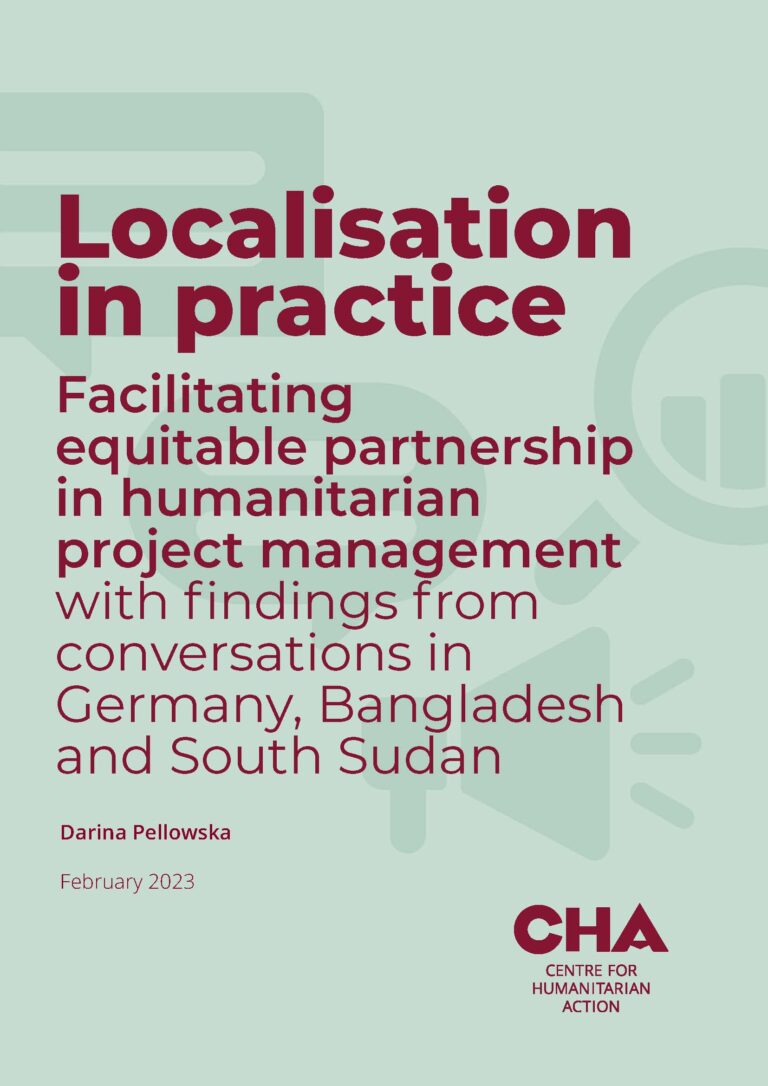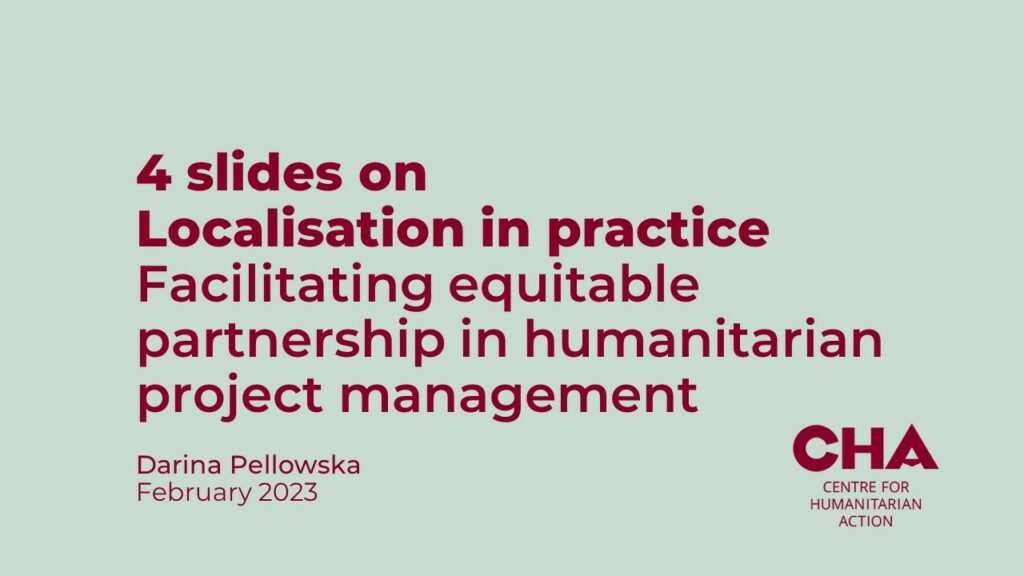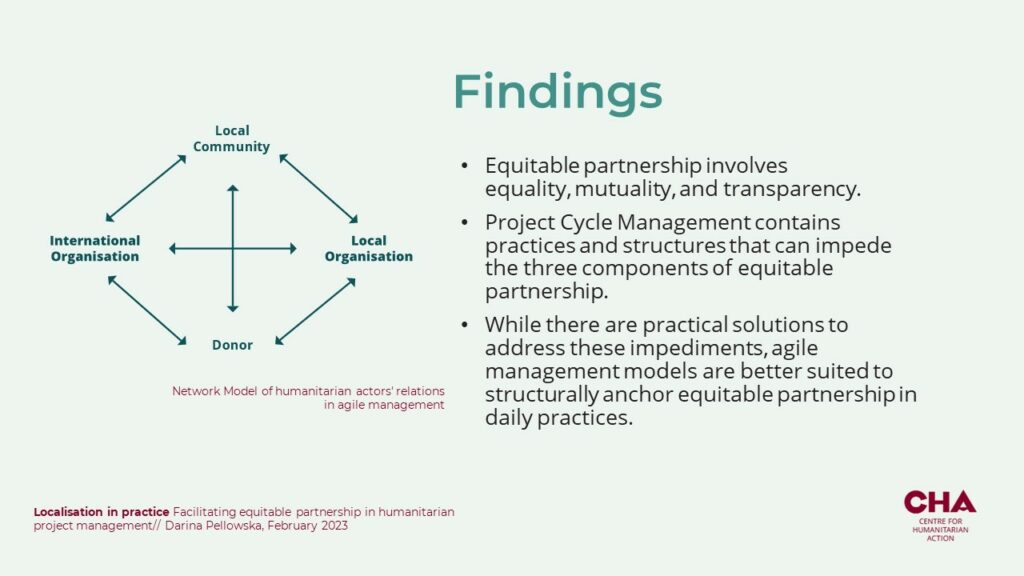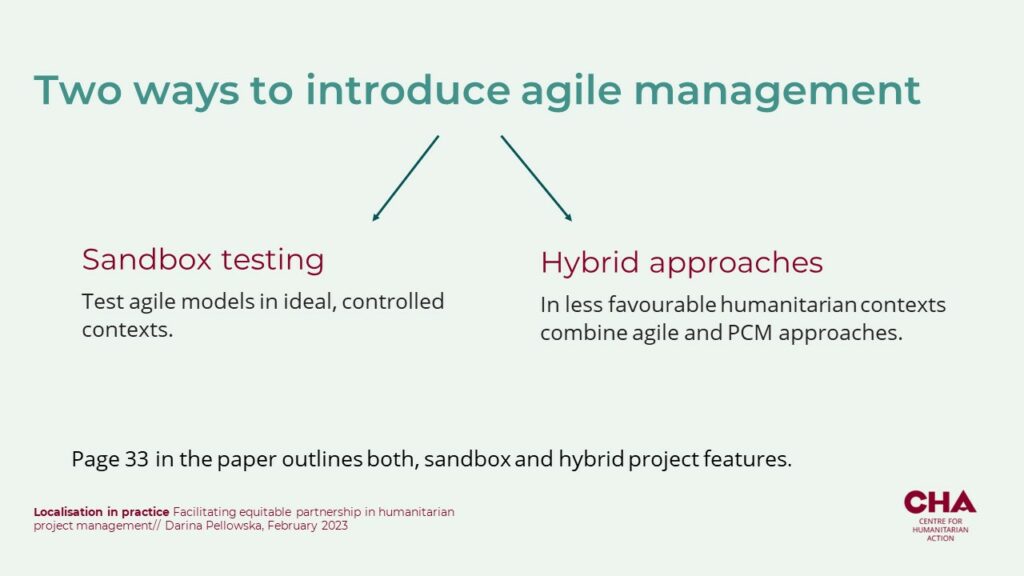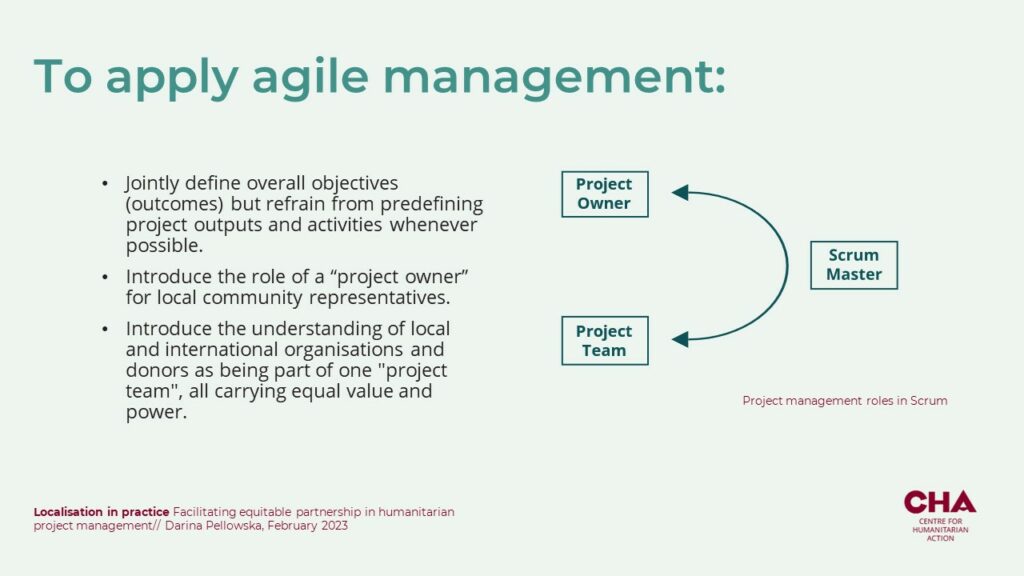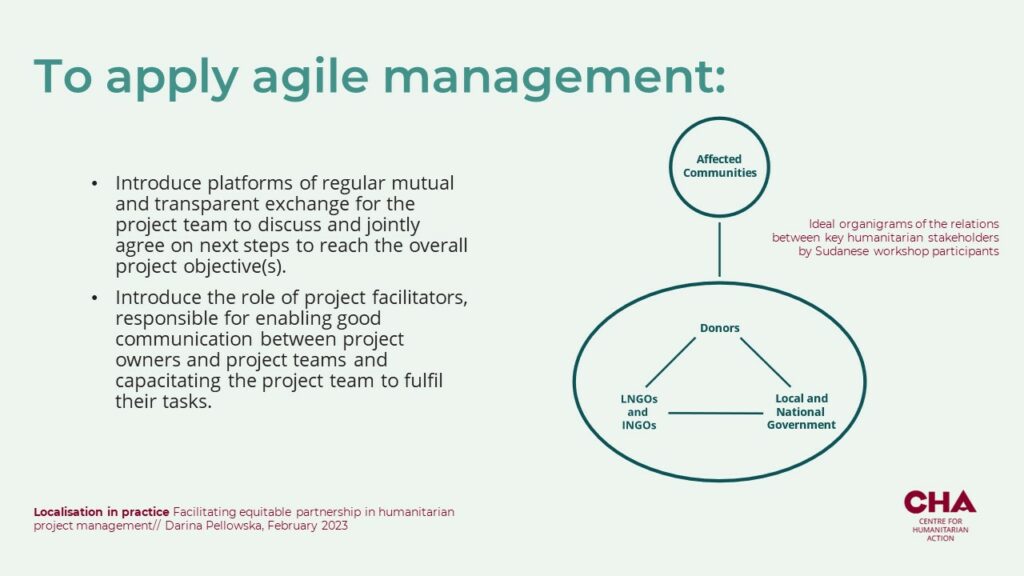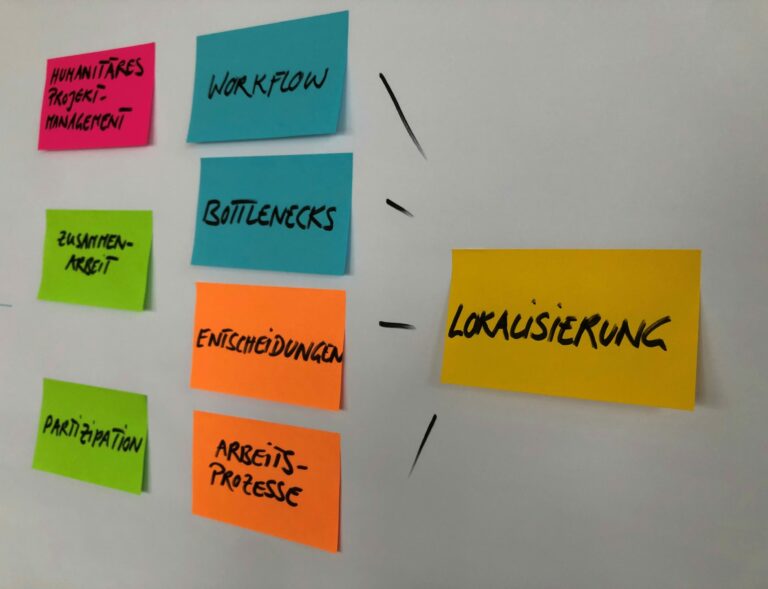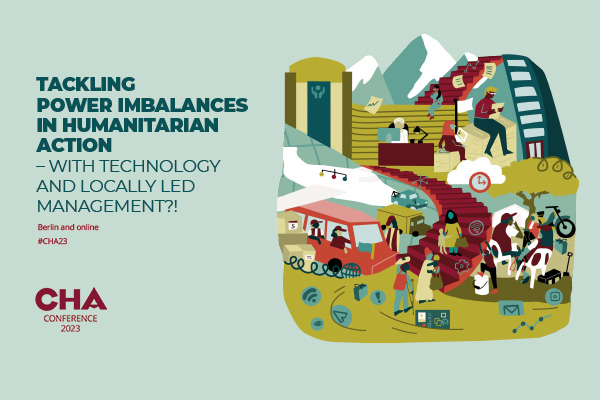| Author: | Darina Pellowska |
| Date: | 28.02.2023 |
| Downloads: |
Paper (EN)
Executive Summary (DE) Executive Summary (EN) Executive Summary (AR) Executive Summary (BN) |
Facilitating equitable partnership in humanitarian project management
International humanitarian actors are increasingly committed to conducting humanitarian action “as local as possible”. But local actors continue to criticise the slow realisation of this so-called localisation commitment into practice. Especially the area of equitable partnership still lags behind.
Based on literature reviews and consultations with international and local organisations in Germany, Bangladesh, and South Sudan, CHA research fellow Darina Pellowska addresses in this paper humanitarian Project Cycle Management (PCM) as one of the structural barriers that hinder the realisation of equitable partnership. She discusses agile management models that involve management structures more capable to facilitate equitable partnerships and presents practical recommendations on how to implement equitable partnership and agile management.
Take Aways:
This paper is a result of the project component Identifying and overcoming localisation barriers in the area of project management and risk transfer, which is part of the project “Strengthening Programme and Policy Relevant Capacities of Humanitarian Actors in Germany” (SPreAD), funded by the German Federal Foreign Office.


